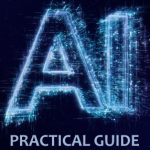AI Tools kit: The Complete and Most Up-to-Date Listing of the Best Free AI Tools and Methods for Students and Professionals
The ability to use artificial intelligence (AI) is quickly becoming a vital talent not just for professionals but also for students. Finding the best artificial intelligence tools kit might be difficult because there are so many resources to choose from. This article is a blog post in which we have prepared a comprehensive collection of free artificial intelligence (AI) tools, approaches, and online resources. This list has been specifically curated for students and aspiring AI engineers. You will be able to maintain a competitive advantage and thrive in the rapidly advancing field of AI if you make use of these resources.
The Best AI Tools Kit Includes
TensorFlow can be found online at http://www.tensorflow.org/
Google’s TensorFlow is a flexible and open-source library for machine learning that the company developed. It is one of the greatest free AI tools in the kit that is currently accessible since it provides a versatile and effective framework for constructing machine learning models and deploying them across a variety of platforms and devices. TensorFlow is a vital resource for people interested in artificial intelligence due to the vast documentation, community support, and compatibility it offers with a variety of neural network topologies.
The website for scikit-learn can be found at https://scikit-learn.org/
This article is about the open-source Python package known as scikit-learn, which provides straightforward and effective tools for data mining and analysis. For individuals who are just getting started with machine learning or want to prototype something quickly, this is a great option. Because it contains a number of different algorithms for classification, regression, clustering, and dimensionality reduction, scikit-learn is an extremely useful AI tool for developers who are working on a wide variety of projects. The library provides a straightforward and consistent application programming interface (API), in addition to extensive documentation, which makes it simple for novices to get started with machine learning.
The website for scikit-learn can be found at https://scikit-learn.org/
This article is about the open-source Python package known as scikit-learn, which provides straightforward and effective tools for data mining and analysis. For individuals who are just getting started with machine learning or want to prototype something quickly, this is a great option. Because it contains a number of different algorithms for classification, regression, clustering, and dimensionality reduction, scikit-learn is an extremely useful AI tool for developers who are working on a wide variety of projects. The library provides a straightforward and consistent application programming interface (API), in addition to extensive documentation, which makes it simple for novices to get started with machine learning.
Google Colab (https://colab.research.google.com/)
You can develop Python code, run that code, and share it all within your web browser using Google Colab, which is an online platform. Students and aspiring AI developers who are looking for a powerful environment in which to learn and experiment with AI tools and approaches will find it to be a good resource because it provides free access to graphical processing units (GPUs) and tensor processing units (TPUs). The integration of Google Colab with Google Drive and GitHub makes it simple to work together on projects, to share your work with other people, and to have access to your files from any location. The fact that the platform comes with a variety of libraries already pre-installed eliminates the requirement for manual installation and configuration.
Fast.ai (https://www.fast.ai/)
Fast.ai is a company whose mission is to democratize deep learning and make it available to everyone. They provide a series of free online courses that address practical deep learning approaches for completing tasks like as image classification, natural language processing, and recommendation system development. Built on top of PyTorch, the fast.ai library offers a high-level application programming interface (API) that makes it easier to train deep learning models. As a result, it is a useful resource not just for students but also for professionals.
spaCy can be accessed at https://spacy.io/
Python users can take use of powerful natural language processing with the help of the spaCy open-source module. It has been developed primarily for production use, and it has text processing features that are both quick and effective. Because it has built-in support for activities such as part-of-speech tagging, named entity recognition, and dependency parsing, spaCy is an excellent choice for developers working on artificial intelligence applications that require advanced language understanding.
PyTorch (https://pytorch.org/)
PyTorch is an open-source deep learning toolkit that was developed by the AI Research group at Facebook. It was established with the goals of being flexible, modular, and efficient. The majority of AI researchers and developers go with this option, particularly when it comes to carrying out research. PyTorch is well-known for its dynamic computation graph, which simplifies the process of creating and debugging neural networks for software developers. Additionally, the library offers extensive support for GPU acceleration, which ensures that the training of deep learning models is carried out in a timely and effective manner.
Keras (https://keras.io/)
Keras is a free and open-source deep learning package that was developed in Python. It provides a high-level neural networks application programming interface (API) that is user-friendly. Because it can run on top of TensorFlow, Microsoft Cognitive Toolkit, or Theano, it has quickly become a favorite option among both novices and seasoned professionals. Keras makes it easier to construct and train deep learning models, which enables developers to rapidly prototype and experiment with a wide variety of neural network topologies. Because of its comprehensive documentation and active community support, the library is an excellent option for developers working AI tools.
NLTK (https://www.nltk.org/)
The Natural Language Toolkit (NLTK) is a robust library written in Python that makes the duties associated with natural language processing more manageable. It is a well-liked alternative for the development of AI applications involving the comprehension of human language. The Natural Language Toolkit (NLTK) provides users with user-friendly interfaces to more than 50 different corpora and lexical resources, in addition to a suite of text-processing modules that can be used for classification, tokenization, stemming, and other purposes. For AI developers that are dealing with language data, NLTK is a useful resource because to the vast documentation and active community that surrounds it.
Coursera can be found online at https://www.coursera.org/
Coursera provides students with access to a diverse selection of AI-related courses and specializations taught by renowned academic institutions and universities. The vast majority of these classes can be viewed online for free, making them accessible to both students and working professionals interested in expanding their knowledge of AI tools and methods. Coursera offers a wide variety of educational opportunities for students interested in artificial intelligence, ranging from beginner classes on machine learning and deep learning to advanced specialties in natural language processing and reinforcement learning.
Kaggle (https://www.kaggle.com/)
Kaggle is an online platform that plays host to competitions in the fields of data science and machine learning. It provides a large number of datasets, kernels (code snippets), and community perspectives, which makes it an extremely useful resource for AI engineers. Students and professionals alike have the opportunity to get experience in the real world, learn from the experiences of others, and demonstrate their talents to potential employers by taking part in Kaggle tournaments.
Weka (https://www.cs.waikato.ac.nz/ml/weka/)
Weka is an open-source compilation of machine learning algorithms for use in data mining jobs. It is implemented in the Java programming language. It offers an all-inclusive set of tools for preprocessing data, as well as classification, regression, clustering, and visualization. Weka’s intuitive graphical user interface makes it simple for students as well as professionals to investigate and experiment with a wide variety of machine learning methods without having to manually write any code.
This AI tools kit aims to provide students and aspiring AI developers with access to some of the most useful free AI tools, approaches, and online resources that are currently available. You will be able to improve your AI skillset and maintain your competitive edge in the quickly developing realm of artificial intelligence if you take use of these tools. Utilize all of these resources to their full potential in order to learn, conduct experiments, and develop novel AI-powered solutions. You will choose how AI develops in the years to come.

